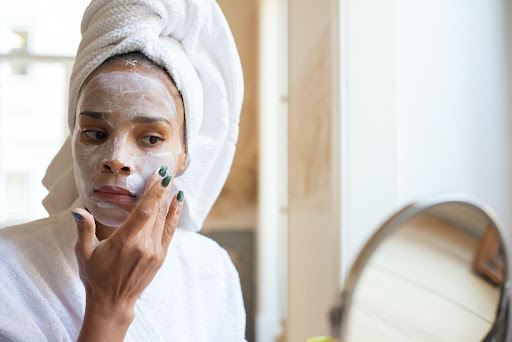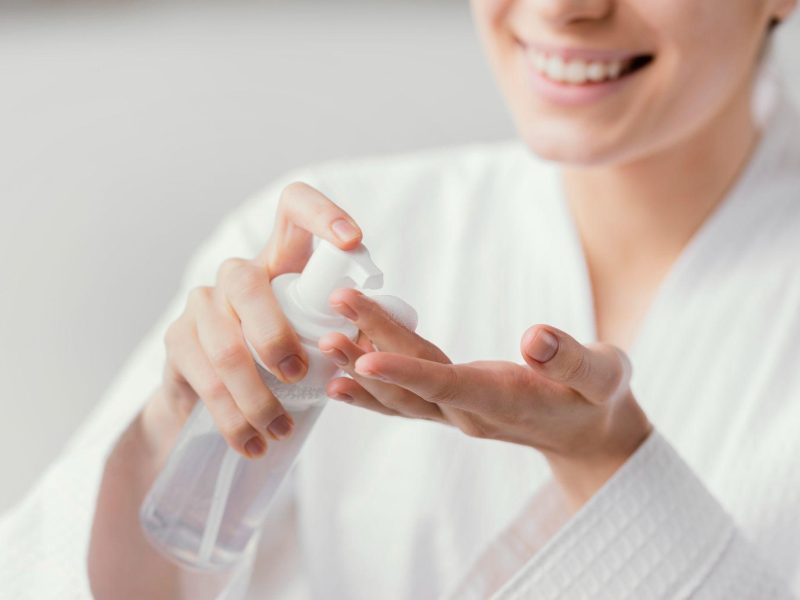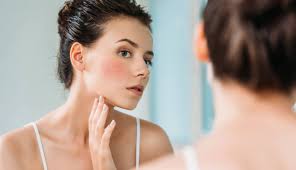Knowing your skin’s characteristics is the fundamental basis for creating a daily skincare routine that provides the results you’re looking for and allows you to enjoy and showcase your natural beauty.
Beauty routines have become more and more popular, have you ever wondered why? The confidence that comes with having healthy skin doesn’t have to be a secret locked away; the benefits of having smooth and well-cared-for skin are becoming increasingly well-known.
It’s natural that when we see someone with healthy and beautiful skin, we wonder about the homemade remedies or secrets behind such beauty, assuming it’s the same for everyone. But, be aware! You must know that all women have different skin types that require different needs.
In this article, we’ll tell you how to learn to differentiate them and also recommend the best products to start your beauty routine.
Know your skin type
There are four types of skin: eudermic (balanced), dry, oily or seborrheic, and combination. There are also sensitive skins, which react easily to external agents. However, our skin may vary depending on other factors, such as age, sun exposure, lack of hydration, and many more.
Recognizing your skin type can be quite simple. There are five basic characteristics that can help you identify yours. If you identify with at least 3 out of the 5, it’s likely that’s your skin type. If you still have doubts, it’s always better to consult a dermatologist.
Balanced Skin:
– I don’t experience redness.
– I hardly have any acne.
– It’s neither too dry nor too oily.
– I don’t have spots.
– My pores are small.
This skin is in perfect balance, showing neither excessive oil nor dryness. Despite this, it still requires proper care, as over time, it may evolve into dry skin.
Dry Skin:
– My skin feels rough.
– Every time I finish bathing or washing my hands, I need to apply cream to avoid tightness.
– I’m very susceptible to external factors, such as changes in temperature.
– I constantly feel itching, and my skin is flaky.
– My skin easily becomes red.
This type of skin can lose moisture through perspiration. Additionally, stress, physical activity, or heat can exacerbate this process. Due to the lack of sebum, dry skin lacks the necessary fats to retain moisture.
Oily Skin:
– The pores of my skin feel dilated.
– It has an uneven texture.
– I’m prone to blackheads and pimples.
– It feels thicker.
– My skin looks shiny and greasy.
It is a skin type characteristic of stages with significant hormonal changes. Also, excessive sebum production can be caused by certain drugs and cosmetics, leading to this type of skin.
Combination Skin:
– I see sebum and shine on my forehead, nose, and chin (T-zone).
– It looks shiny.
– My cheeks are dry.
– It has a patchy appearance.
– I feel tightness in the skin.
In this skin type, different areas of the face have more oiliness while others are dry. It is the most common facial skin type.
Sensitive Skin:
– Allergies.
– My skin looks dry.
– I get redness when using certain skincare products.
– I feel tightness and warmth, and I blush easily.
– I experience itching.
This is one of the skin types that requires more time and care. You’ll have to choose natural remedies very carefully as it reacts very quickly and easily to any component or external agent.
Also read about Totality Skincare
First steps to define your skincare routine
Taking all these points into account when starting your skincare routine is a must to ensure you get the best results and avoid frustration along the way, thinking that the treatment isn’t working.
When acquiring products, you’ll find a wide variety of recipes and brands. The most important thing? The basics are the same for everyone; only the formulas will change depending on your skin type.
Here’s a guide to the best skincare products that you can’t miss to achieve the skin you’ve always dreamed of.
Facial cleanser and makeup remover: The facial cleanser helps keep the skin clean, and removes dirt, sweat, bacteria, and particles present in the environment that adhere to our skin daily. It also helps maintain skin hydration.
Castor oil: It stimulates the production of collagen and elastin, which are responsible for smoothing and deeply moisturizing the skin. You just have to apply a few drops to your face and spread it with gentle circular massages. Additionally, thanks to its properties, it will help you combat acne.
Serum with vitamin C: It is essential to maintain youthful skin and delay the signs of aging. This serum provides elasticity, restoring firmness to the face. Apply it in the morning, avoiding the eye area, and combine it with sunscreen.
Micellar water: It works as an all-in-one product, as it removes makeup, cleanses, and tones the skin without the need to rub; you just need to gently pass it over your face. Use it in the morning and at night.
Facial masks: Facial masks offer many benefits to our skin. They exfoliate the skin and remove dead cells. They are one of the best ways to hydrate your face as they moisturize and nourish the deeper layers. Furthermore, they provide luminosity and purify the epidermis, providing oxygen to our face.
The range of beauty products for women is extensive, which is why it is important to be informed about the characteristics, benefits, and contraindications of what we are interested in incorporating into our skincare routine.
It is common for beginners to make basic mistakes. Follow these tips patiently, and there will be no problem.
These are the first steps you should apply to start a skincare routine for your skin and give yourself a few minutes of love, well-being, and self-care every day.
Also Read: Secret RF Microneedling | What you need to know about?


